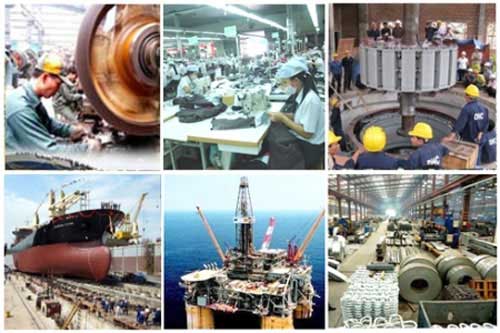|
Economic restructuring a
success, especially in credit
Vice Chairman of the National Assembly
Committee for Economic Affairs Nguyen Duc Kien told Nhan dan (The People)
newspaper about the Autumn Economic Forum, which opens this weekend in Ninh
Binh.
What's the most successful area in
the on-going economic restructuring process in our country?
There are two main reasons for me to come to this
conclusion. Firstly, it is the success in building a legal foundation. The
state's five-year plan, from 2011-2015, was approved by the Prime Minister
through a decision signed on March, 1, 2012.
A year later, in February, 2013, the Prime Minister
approved the master plan for national economic reform. In other words,
financial reform went ahead a year before economic reform.
That's why the PM's decision on March 1, 2012 should be
considered as a big legal success and the most important legal document in
the course of restructuring our banking system. The document has enabled the
banking sector to take actions against weak banks and come up with a road map
through 2015. By then, Vietnamese banks should improve in scale, quality and
effectiveness.
Secondly, in the institutional field, we were
successful in issuing the Law on Deposit Insurance, as well as revising the
Ordinance on Foreign Currency and the Decree on Gold Management. These
documents have helped to restore law and order in the monetary, gold and the
foreign currency markets. They have provided favourable conditions for the
restructuring of credit organisations.
In a nutshell, the on-going restructuring of the credit
organisations has successfully prevented credit institutions from collapse,
while ensuring the nation's monetary security.
What about the reform of state-owned
enterprises and public investment?
The reform of state-owned enterprises (SOEs) has also
been successful.
A number of legal documents have been compiled and
issued, including decrees on improving and modernising the management of both
SOEs, as well as state capital invested into enterprises. These documents
have helped solidify the legal foundation for SOE restructuring.
However, it is imperative to elevate some of the
decrees to laws. Relating to public investment reform, at present we only
have the Government Decree No 11/NQ-CP, focusing on measures to control
inflation, stabilise the macro economy and to ensure social security.
In addition, in October 2011, the government issued
Instruction 1792/CT-TTg on tightening the management of state capital and
proceeds from Government bonds' sales.
More recently, in June 2014, the Law on Public
Investment was approved by the National Assembly and it will come into force
in January 2015. In reality, the number of public investment projects has so
far reduced quite considerably compared with the period before 2011.
Will you please give us some
information about the up coming 2014 Autumn Economic Forum?
This year's Autumn Economic Forum will cover several
topics relating to the reform of the three sectors - public investment, state
owned enterprises and credit institutions, as these sectors are intertwined.
Regarding the public investment sector - participants
in the forum will discuss whether
It is expected that as from January 1, 2015, a formal
ASEAN Community will be established, and on January 1, 2018 all of the
gracious policies
Regarding the restructuring of state-owned enterprises,
participants will discuss how to improve the effectiveness of SOEs so that
many enterprises can participate in the global value chain. That's the best
way to show that the SOEs have used state capital efficiently.
For credit institutions, we have to allow some weak
credit institutions to go bankrupt. The Law on Deposit Insurance guarantees
that all depositors' benefits are all protected by the law.
VNS/VNN
|
Thứ Tư, 24 tháng 9, 2014
Đăng ký:
Đăng Nhận xét (Atom)

Không có nhận xét nào:
Đăng nhận xét